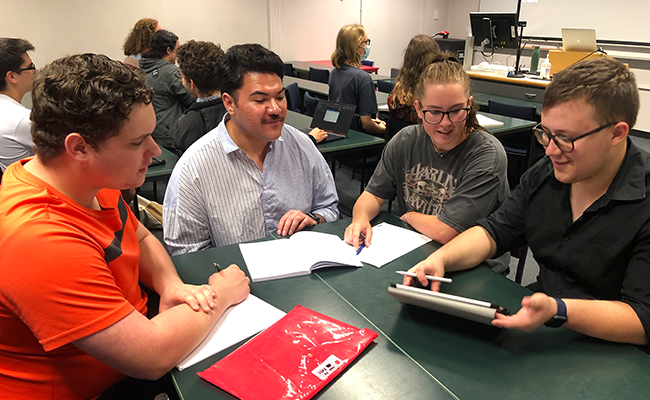Tuesday 31 January 2023 3:50pm

Jack Hollis-Wilson, left, with Leighton Williams, Amelia Greet and Liam Knotts during their tutorial.
Wanting to make a positive change in people’s attitudes towards Māori culture is one of the reasons University of Otago kaiwhakaako (teaching fellow) Leighton Williams teaches.
Williams is currently lecturing summer school paper MAOR110 Introduction to Conversational Māori – one of the most popular Summer School papers with more than 80 students this year, and says they enjoy being a part of work to revitalise the language.
“What we more or less are doing is trying to create this attitudinal shift, not just to the Māori language, but to Māori culture, and the important place it should have here in New Zealand,” Williams says.
“It’s more than learning course content, it’s about learning everything around the language.”
They want students to feel like they are a part of that “rather than being outside and being an external participant, to participate in Māori language revitalisation”.
Students take the paper for various reasons, Williams says, including a desire to “locate themselves” in New Zealand through engaging with the language; others do it to add points to their degree.
“But then we get some Māori students who are taking the paper for a much deeper reason, I think perhaps to reaffirm their identity and to engage more with their cultural heritage.
“For many of our Māori students, it’s about feeling connected, I think, to be a part of something that is here and a part of who they are.”
One of the first things students cover is how to correctly pronounce Māori vowel sounds, and understand how other sounds behave in the Māori language, Williams says.
Students then progress on to greetings and simple language structures, encouraging students to engage with te reo Māori as a spoken, written and heard language.
If students were to continue on with further Māori language papers, they would slowly build their vocabulary and knowledge of grammar to higher degrees of proficiency, Williams says.
February 17 is the last day of Summer School classes.
